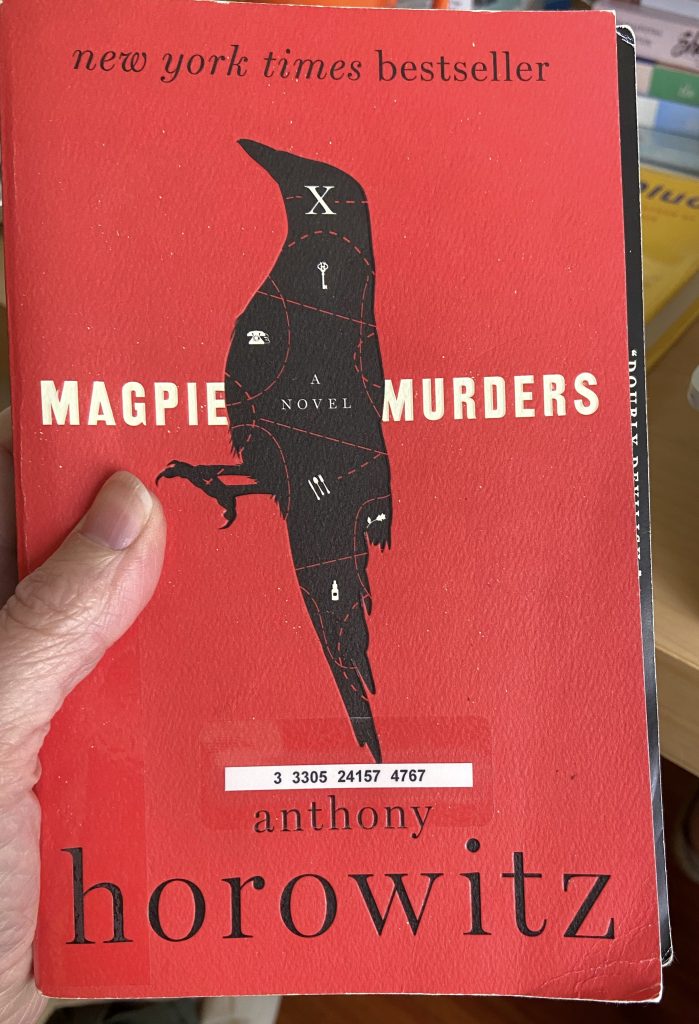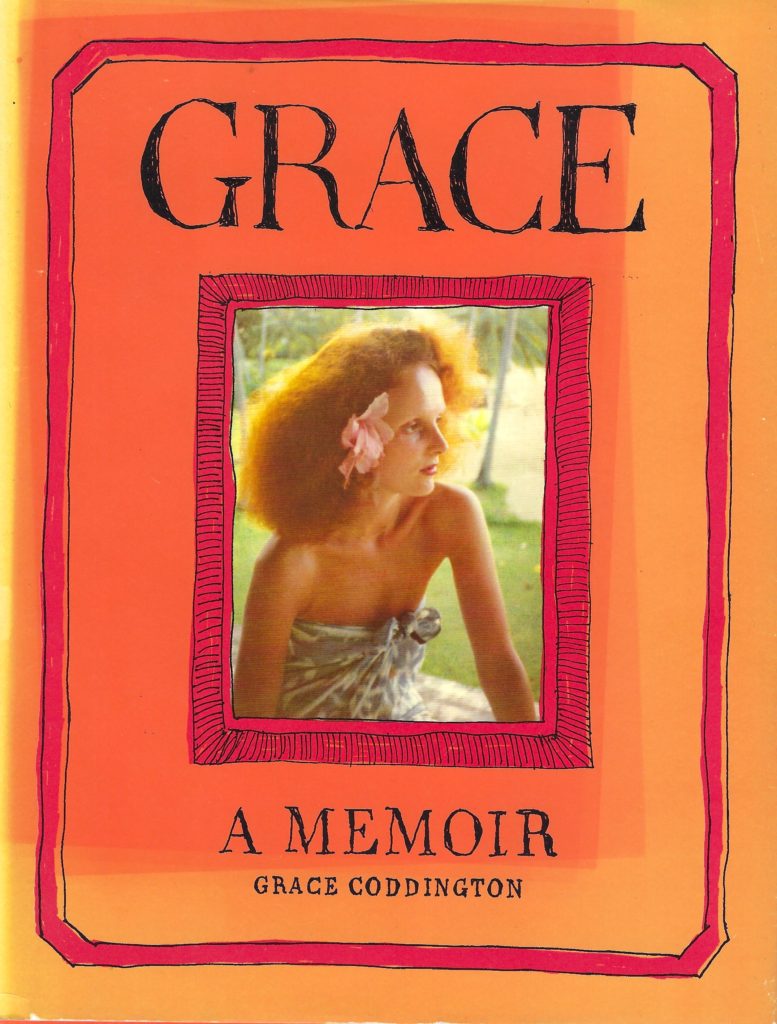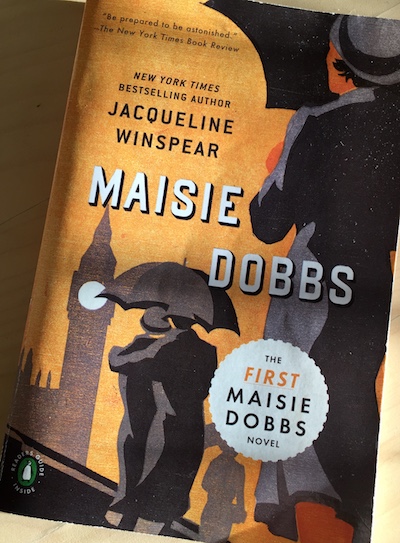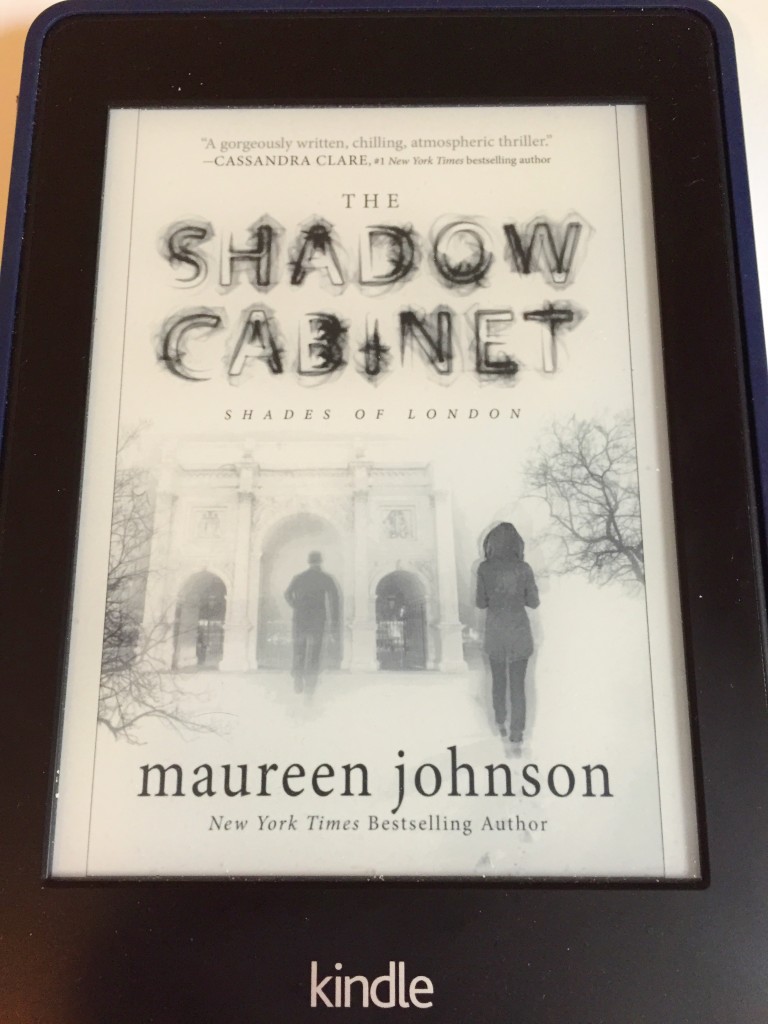Magpie Murders is your basic murder mystery. Someone who isn’t very like-able is murdered, there is a cast of characters, clues along the way, someone who isn’t an official police detective who isn’t willing to buy the party line, with a resolution at the end. But there is a clever conceit to this one – the murdered person is a murder mystery author. And their latest book contains enough clues that you actually get to read the second book, embedded within Magpie Murders.
Anthony Horowitz is the creator of Foyle’s War, a murder mystery series on PBS that I enjoy, and the book-embedded-in-the-book has some of that energy. He has also worked on Midsomer Murders, in case that particular PBS murder mystery show is more your jam. The point: the guy knows how to construct a mystery – this isn’t his first book, either – and the plot is satisfying. My only criticism is that the characters were a little on the bland/stereotype side. But overall, I enjoyed it.









